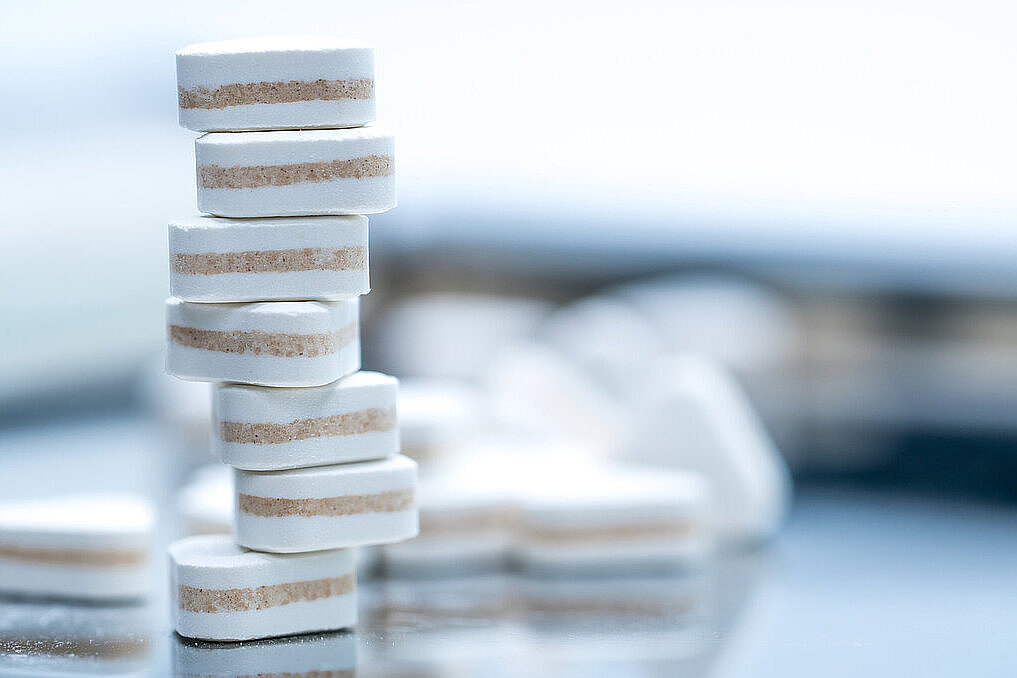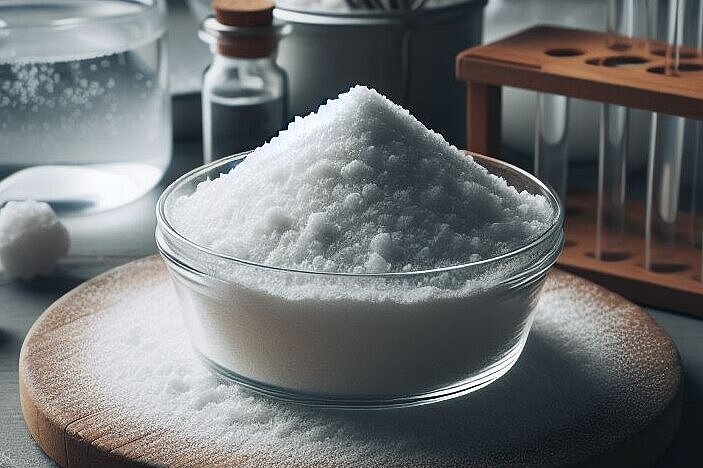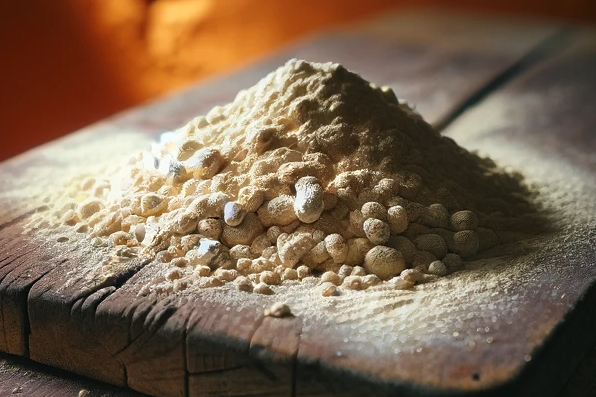Staghorn salt

You may have heard of deer horn salt, an ingredient that is mainly used in Christmas baking. But what is deer horn salt and how does it affect dogs? In this article, you can find out more about this special ingredient and its advantages and disadvantages for your four-legged friend.
What is deer horn salt?
Deer horn salt is a leavening agent consisting of ammonium carbonate. It is obtained from the horns of deer, hence the name. Deer horn salt has a strong ammonia smell, but this evaporates during baking. It ensures that the dough is fluffy and crispy. Deer horn salt is mainly used for gingerbread, speculoos and other baked goods that need to keep for a long time.
How does deer horn salt affect dogs?
Deer horn salt is not poisonous for dogs, but it is not healthy either. If your dog eats a piece of cookie containing staghorn salt, he may get stomach ache, diarrhea or vomiting. This is because staghorn salt increases the pH value in the stomach and irritates the mucous membranes. Deer horn salt can also irritate the respiratory tract if the dog inhales the ammonia odor.
Benefits of deer horn salt for dogs
However, there are also some benefits of deer horn salt for dogs. For one, deer horn salt can help reduce your dog's interest in baked goods because he doesn't like the smell. This can prevent him from eating too much sweet food and becoming overweight. Staghorn salt can also act as a natural tick repellent. Rubbing a little deer horn salt into your dog's coat can deter ticks, as they don't like the smell of ammonia either.
Disadvantages of deer horn salt for dogs
However, the disadvantages of deer horn salt for dogs outweigh the benefits. As already mentioned, deer horn salt can lead to gastrointestinal complaints and irritation of the respiratory tract. It can also trigger allergic reactions such as skin rashes or itching. If your dog eats or inhales a large amount of staghorn salt, it can even lead to symptoms of poisoning such as convulsions or unconsciousness. In this case, a vet should be consulted immediately.
Deer horn salt is an ingredient that you should not give your dog. It can cause various health problems and has few positive effects. If you want to do something good for your dog, bake him something tasty yourself without deer horn salt or buy him special dog treats. That way you can be sure that he won't have any unwanted side effects and will be happy to have your attention.
If you notice any signs of hypersensitivity or poisoning in your dog, you should see your vet immediately. We are not a substitute for a vet, but we try to be as accurate as possible. Every dog reacts differently and we recommend you get a second opinion or consult your vet if in doubt.
Stay healthy and take good care of your four-legged friend!😊
Similar to Staghorn salt
Cream of tartar baking powder is a leavening agent that consists of three components: Baking soda: Baking soda is a sodium salt of carbonic acid, also known as sodium bicarbonate or sodium hydrogen...
Sodium hydroxide is an important raw material in the chemical industry. It is used, for example, to produce soap, paper, plastics and dyes. It is also used to neutralize acids or dissolve other...
Potassium carbonate is a salt that is formed by the reaction of potassium hydroxide with carbon dioxide. It is soluble in water and forms an alkaline solution. Potassium carbonate is an important...
Yeast is a microorganism that belongs to the fungi. It feeds on sugar and produces carbon dioxide and alcohol in the process. This process is called fermentation and is responsible for the rising of...



